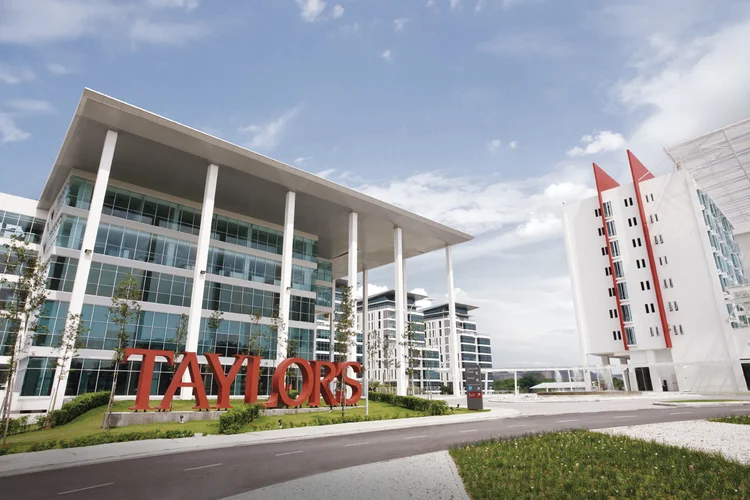OVERVIEW
Our Bachelor of Computer Science programme is designed to train students in the foundational science behind computerisation and its practical applications. We provide a comprehensive curriculum that combines scientific principles with practical approaches to equip you with the necessary skills and knowledge in the field of computer science.
Throughout this programme, you will delve into various areas of computer science, including algorithms, programming languages, data structures, computer networks, software engineering, artificial intelligence, and more. We aim to provide you with a strong foundation in the fundamental concepts and theories of computer science, while also emphasising the practical aspects of applying this knowledge in real-world scenarios.
School
Computer Science
Intake Month
February, April and September
Study Options
Full time only
Dual Award
University of West England, UK
Overseas Transfer Options
United Kingdom (UK) and Australia
Study Programme
3-year
Triple Track Mode
Conventional or Work-Based Learning or Technopreneurship
Interested to know more? Start your journey with us now.
PROGRAMME OVERVIEW
At this Bachelor of Computer Science programme, you will have the opportunity to specialise in one of the following areas: Data Science, Cyber Security, Mobile Computing, and Artificial Intelligence. By choosing one of these specialisations, you will gain in-depth knowledge and skills in your chosen area of expertise. Our experienced faculty members, industry collaborations, and cutting-edge resources will support your learning journey and provide you with the necessary tools to excel in your chosen specialisation.
Data Science (Dual Award)
In the Data Science specialisation, you will delve into the field of data analysis and learn techniques to extract valuable insights from vast amounts of data. You will study data mining, statistical analysis, machine learning, and data visualisation, equipping you with the skills to make data-driven decisions and contribute to the growing field of data science.
Modules
- Statistical Inference and Modelling
- Data Science Principles
- Data Mining
- Big Data Technologies
Cyber Security (Dual Award)
If you choose the Cyber Security specialisation, you will explore the critical field of safeguarding digital systems and networks. You will learn about cybersecurity principles, network security, cryptography, and computer crime and digital evidence. With this specialisation, you will be prepared to tackle emerging cyber threats and protect organisations from cyber-attacks.
Modules
- Computer and Network Security
- Computer Intrusion Detection
- Computer Crime and Digital Evidence
- Wireless Networks and Security
Mobile Computing (Dual Award)
The Mobile Computing specialisation focuses on the development of mobile applications and technologies. You will gain a comprehensive understanding of mobile platforms, user interface design, mobile app development, and mobile data management. This specialisation equips you with the skills to create innovative and user-friendly mobile solutions.
Modules
- Introduction to Mobile Computing
- Mobile Applications Development
- Wireless Networks and Security
- Internet of Things
Artificial Intelligence (Dual Award)
In the Artificial Intelligence specialisation, you will dive into the fascinating field of intelligent systems and automation. You will study machine learning algorithms, natural language processing, computer vision, and big data technologies. With this specialisation, you will be at the forefront of developing intelligent systems that can learn, reason, and make decisions.
Modules
- Computer Vision and Natural Language Processing
- Data Analytics and Machine Learning
- Cognitive Computing and Applications
- Big Data Technologies
PROGRAMME STRUCTURE
In the Bachelor of Computer Science (Honours) programme, you will have the flexibility to choose between three tracks for the third year. The first option is the Conventional track, which provides valuable industry experience through internships or cooperative education placements. The second option, Work-based learning (WBL), provides hands-on experience with industry partners for a full year, allowing you to apply theoretical knowledge in real-world settings and gain relevant practical skills.
The third option is the Technopreneurship track, which emphasises the entrepreneurial aspects of computer science. In this track, you will learn about technology-driven innovation, startup management, and business strategies in the digital era. This option is ideal for those who aspire to be tech entrepreneurs or work in technology startups.
Our degree programme is fully compatible with the Taylor’s Curriculum Framework, which offers you the flexibility to mix and match study modules.
Primary Major
This component consists of Common Core subjects, which are common modules across a discipline that provides fundamental knowledge of the discipline.
Common Core
Year 1
• Database Systems
• Computer Architecture and Organisation
• Object Oriented Programming
• Discrete Structures
• Principles of Software Engineering
• Systems Analysis and Design
• Data Structures and Algorithms
• Operating Systems
• Advanced Programming
Year 2
• Computer Networks
• Machine Learning and Intelligent System
• Ideating Start-up
• Specialisation modules
Year 3
Conventional Mode
• Capstone Project I
• Capstone Project II
• Human Computer Interaction
• Professional Practices and Information Security
Work-Based Learning Mode
• Human Computer Interaction
• Professional Practices and Information Security
• Industrial Project I
• Industrial Project II
Technoprenueurship Mode
• Human Computer Interaction
• Technopreneurship Project I
• Professional Practices and Information Security
• Technopreneurship Project II
Note: All information is subject to change. Readers are responsible for verifying information that pertains to them by contacting the university.
University Core
This component aims to develop critical thinking, build up social intelligence and cultivate civic responsibility as well as broaden cultural knowledge. These consist of compulsory and nationally mandated study modules required by the Malaysian Ministry of Higher Education.
- Penghayatan Etika dan Peradaban / Bahasa Melayu Komunikasi 2
- Falsafah dan Isu Semasa
- Emotional Intelligence in Action
- Kursus Integriti Dan Antirasuah (Integrity And Anti-Corruption)
- Social Innovation Project
Note:
- Students are requested to take Bahasa Kebangsaan A if they do not obtain a Credit for Bahasa Malaysia in SPM.
- All information is subject to change. Readers are responsible for verifying information that pertains to them by contacting the university.
Flexible Education
The Flexible Education component offers students the flexibility to explore modules in a related or unrelated field, enhancing and complementing their primary major. This component allows students to broaden their knowledge and skills by selecting modules from the same or different schools within the university.
Flexible Education can take various forms, including free electives, extensions, minors, or even a second major. These options provide students with the opportunity to delve deeper into a specific area of interest or broaden their understanding by exploring a different field of study.
Click here to see a full list of all available Flexible Education Components.
You will need to choose one of the packages below.
You will need to select any five (5) of the Free Electives offered by Taylor’s University. You can refer to the Flexible Education Guide for the complete list. The free electives offered are subject to availability and you will need to meet the minimum module pre and co-requisite.
Minor
You will need to select one of the Minor packages offered by Taylor’s University. You can refer to the Flexible Education Guide for the complete list. The minors offered are subject to availability and you will need to meet the minimum module pre and co-requisite.
Recommended Packages
- Creative Media Design
- Advertising
- Biotechnology
- Accounting
- Management
- International Business
- Entrepreneurship
- Finance
- Marketing
Second Major
You will need to select one of the Major packages offered by Taylor’s University. You can refer to the Flexible Education Guide for the complete list. The majors offered are subject to availability and you will need to meet the minimum module pre and co-requisite.
Extension
For those who selected Cyber Security as Specialisation, you will need to choose one (1) of the below Extension packages:
- Data Science
- Artificial Intelligence
- Business Intelligence and Analytics
- Mobile Computing
- Digital Transformation
For those who selected Mobile Computing as Specialisation, you will need to choose one (1) of the below Extension packages:
- Data Science
- Artificial Intelligence
- Business Intelligence and Analytics
- Cyber Security
- Digital Transformation
For those who selected Data Science as Specialisation, you will need to choose one (1) of the below Extension packages:
- Mobile Computing
- Cyber Security
- Internet Technologies
- Artificial Intelligence
- Digital Transformation
For those who selected Artificial Intelligence as Specialisation, you will need to choose one (1) of the below Extension packages:
- Mobile Computing
- Cyber Security
- Internet Technologies
- Business Intelligence and Analytics
- Data Science
Note: Student must choose an Extension package that is different from their chosen specialisation.
ENTRY REQUIREMENTS
Are you ready to take the next step in your academic journey? Our programme offers an exciting opportunity for individuals passionate about the field of Computer Science. To ensure a smooth admission process, please take note of our entry requirements listed below.
Prerequisites
- Pass SPM/O-level or equivalent with 5 credits (including Additional Mathematics) for entry with pre-university/foundation qualification (Except for UEC).
- Pass SPM/O-level or equivalent with 3 credits (including Additional Mathematics) for entry with Diploma / pre-university qualification.
- Note: Candidates without a credit in Additional Mathematics at SPM level or its equivalent may be admitted if the Foundation program contains subjects in mathematics that are equivalent to Additional Mathematics at SPM level.
- As for Bachelor of Software Engineering (Honours) and Bachelor of Computer Science (Honours), students without a credit in Additional Mathematics at SPM level OR without Mathematics at a higher level (Pre-U, STPM, A Level, Foundation) but have obtained a credit in Mathematics and a credit in one of the subjects in Science / Technology / Engineering at SPM level is required to take and pass the reinforcement Mathematics equivalent to Additional Mathematics at the SPM level. The subject must be offered in the first semester or before enrollment with unconditional offer.
- Reinforcement Mathematics can be offered as part of or outside the curriculum structure. If Reinforcement Mathematics is offered as part of the curriculum structure, it should count as an addition to the total number of credits required for graduation.
Note:
- Candidates without a credit in additional mathematics at SPM level or its equivalent may be admitted if the Foundation programme contains subjects in mathematics that are equivalent to additional mathematics at SPM level.
- As for Bachelor of Software Engineering (Honours) and Bachelor of Computer Science (Honours), students without a credit in Additional Mathematics at SPM level OR without STPM, A-Level, Foundation) but have obtained a credit in Mathematics and a credit in one of the subjects in Science / Technology / Engineering at SPM level is required to sit and pass a Bridging Module conducted by the School of Computer Science and Engineering at the beginning of their studies to graduate from the programme.
- Readers are responsible for verifying information that pertains to them by contacting the university.
- Candidates must pass Bahasa Malaysia and History in SPM
Entry Pathway
Pass with min. CGPA 2.00
Diploma in Information Technology (DIT)
Pass with min. CGPA 2.50 (candidates with CGPA below 2.50 but above 2.00 may be admitted subject to internal evaluation process)
Sijil Tinggi Persekolahan Malaysia (STPM)
A pass in STPM (Science Stream) or its equivalent with a minimum grade of C (CGPA 2.00) in Mathematics subject and ONE (1) Science / ICT subject.
(Pre-requisite of Credit in Additional Mathematics at SPM level or equivalent is not required); OR Pass with Grade C in any 2 subjects
Unified Examination Certificate (UEC)
Pass with minimum 5Bs, including Mathematics or Advanced Mathematics or Adv. Mathematics 1 or 2
A Level
Pass with min. DD
AUSMAT (SACEi)
Min. ATAR 55
Canadian Pre-University (CPU)
Min. average of 50% in 6 subjects
International Baccalaureate (IB)
Min. 24 points in 6 subjects
Monash University Foundation Year (MUFY)
Overall 50%
Other Qualifications
- Diploma in Computing (Level 4, MQF) or its equivalent with a minimum CGPA of 2.50. Candidates with a CGPA below 2.50 but more than 2.00 may be admitted subject to a thorough internal evaluation process.
- Any Diploma in Science and Technology (Level 4, MQF) with a minimum CGPA of 2.75. Candidates with a CGPA below 2.75 but more than 2.50 can be admitted subject to a thorough rigorous assessment.
- Pass Matriculation programs recognised by the Ministry of Education Malaysia in the relevant field with a minimum CGPA of 2.00.
- Pass ANY Foundation with a minimum CGPA of 2.0 from other institutions recognised by the Malaysian Government.
- Diploma Kemahiran Malaysia (DKM) / Diploma Vokasional Malaysia (DVM) / Diploma Lanjutan Kemahiran Malaysia (DLKM) in Computing fields with a minimum CGPA of 2.50 subjected to HEP Senate / Academic Board’s approval.
- Any other qualifications recognised as equivalent by the Malaysian Government.
- Application via APEL A is allowed. For the requirements, please refer to the index page.
Notes:
- Candidates without a pass in Mathematics and English at SPM level or its equivalent may be admitted if the STPM / Matriculation / Foundation / Diploma programme contains subjects in Mathematics and English that are equivalent and achieved higher at SPM level.
- All information is subject to change. Readers are responsible for verifying information that pertains to them by contacting the university.
English Requirements
Pass English
Taylor’s EET
Overall Score 5.0
Cambridge English/ELS also recognised; the minimum score varies by programme
Taylor’s IEN
Level 2- Grade C
Pre-U / Diploma
Completed Pre-U / Diploma that was conducted in English
Note: All information is subject to change. Readers are responsible for verifying information that pertains to them by contacting the university.
FUTURE CAREERS
When you’ve successfully completed this Bachelor of Computer Science programme, you could embark on any of these exciting careers, including:
- Applications Developer
- Database Designer
- E-Business Consultant
- IT Consultant
- Network Engineer
- Programmer
- Software Developer
- Software Engineer
- Systems Analyst
- Systems Developer
- Technical Support Engineer
CHAT WITH OUR STUDENT
Experience Taylor’s University Through the Eyes of Our Students
Are you curious about what the Bachelor of Computer Science programme is like in the eyes of a current student? Our Unibuddy programme is here to connect you with our friendly and knowledgeable student ambassadors.
Why Talk to a Unibuddy?
- Real Insights: Get honest, firsthand experiences about studying and living here.
- Personalised Advice: Whether it’s about course workload, best study spots, or student clubs, get the lowdown on what interests you.
- Diverse Perspectives: Our student ambassadors come from various backgrounds and study different courses. Find someone who shares your interests or challenges!
Ask anything you like about studying with us. Our student will get back to you within 24 hours.














